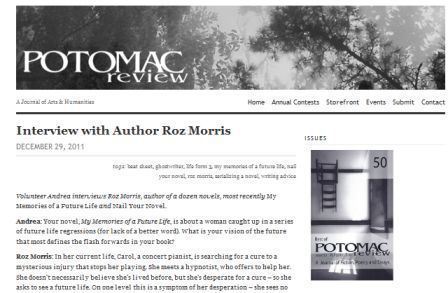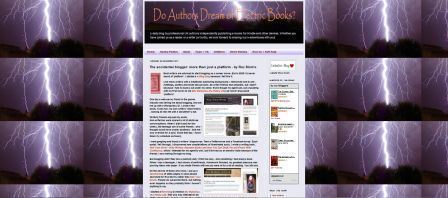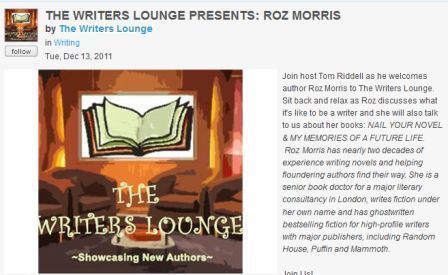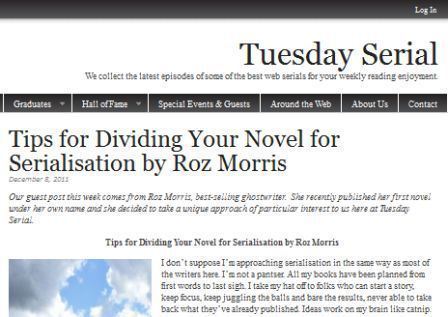Roz Morris's Blog, page 102
December 31, 2011
Experts and explorers – writing goals for 2012
 Last year, the only plans I had as 2010 clicked to 11 were to finish my troublesome novel Life Form 3 and get it agented. Continue the blog and my consultancy and nurture ideas for my next novels. I did those, but I also find myself looking back at some self-publishing ventures that were not, in 2010, even a twinkle in my champagne glass.
Last year, the only plans I had as 2010 clicked to 11 were to finish my troublesome novel Life Form 3 and get it agented. Continue the blog and my consultancy and nurture ideas for my next novels. I did those, but I also find myself looking back at some self-publishing ventures that were not, in 2010, even a twinkle in my champagne glass.
Self-publishing on Kindle – especially my novel – was not planned at all. Neither was starting a second blog. It kind of happened – because of the people I met on blogs, here, Twitter, Facebook.
Writers used to work in isolation. Now we are a community of experts and explorers. We show the way when we can and we cheer each other on.
Not only can we spread knowledge, we can change attitudes. One of the quantum changes of 2011 has been that we now accept quality authors can publish without being chosen for it. That's not to say 'traditional publishing' is dead – just that we now have extra options for reaching readers.
To everyone who is part of this, I raise a glass. Its predictions for 2012 are inscrutable, of course. The only plans I can be bothered to make in any detail are creative. But going on previous form there will be exciting things I cannot imagine right now.
And may it be the same for you. Happy new year.








December 29, 2011
The writing advice I most cherish – interviewed at the Potomac Review
 Does writing get any easier the more novels you finish? Does anything get harder? What piece of writing advice do I most cherish? I'm being interviewed today at the Potomac Review, the bi-annual American literary journal of fiction, poetry nonfiction and photography. One of its custodians got in touch after reading My Memories of a Future Life and I'm honoured to be featured on its exquisite pages.
Does writing get any easier the more novels you finish? Does anything get harder? What piece of writing advice do I most cherish? I'm being interviewed today at the Potomac Review, the bi-annual American literary journal of fiction, poetry nonfiction and photography. One of its custodians got in touch after reading My Memories of a Future Life and I'm honoured to be featured on its exquisite pages.
Proper post from me soon, but speaking of MMOAFL, you can get episode 1 for free on Kindle – but hurry to the Kindle store right now as the offer vanishes after December 30…








December 27, 2011
'To write about events with a depth that the passage of time might have made shallow' – Catherine Ryan Howard
 My guest today on The Undercover Soundtrack is self-publishing blogger and travel writer-turned-novelist Catherine Ryan Howard. When she sat down to write her second travel memoir, Backpacked: A Reluctant Trip Across Central America, she turned to movie soundtracks to recapture the truth of the experience. Saunter over to the red blog for total recall.
My guest today on The Undercover Soundtrack is self-publishing blogger and travel writer-turned-novelist Catherine Ryan Howard. When she sat down to write her second travel memoir, Backpacked: A Reluctant Trip Across Central America, she turned to movie soundtracks to recapture the truth of the experience. Saunter over to the red blog for total recall.
And incidentally, in this festive season you can get episode 1 of My Memories of a Future Life for free on Kindle – but hurry to the Kindle store right now as the offer vanishes after December 30…








December 20, 2011
'Rhythm taps into the part of my brain that lets the words flow' – Jennie Coughlin
 My newest guest on The Undercover Soundtrack is Jennie Coughlin, author of Thrown Out: Stories from Exeter. When she's on a deadline she puts Simon and Garfunkel's The Boxer on repeat for hours – and cheerfully admits that these days she'd be diagnosed as Asperger's. Catch the beat here
My newest guest on The Undercover Soundtrack is Jennie Coughlin, author of Thrown Out: Stories from Exeter. When she's on a deadline she puts Simon and Garfunkel's The Boxer on repeat for hours – and cheerfully admits that these days she'd be diagnosed as Asperger's. Catch the beat here








December 19, 2011
The accidental blogger – post at Do Authors Dream of Electric Books?
 A couple of years ago I hadn't heard of blogging, in fact my main thoughts about it was how ugly it was as a word. Then I started writing on a WordPress thingy and rather liked it. Now I blog like a woman with three arms, I've launched books because of blogs – and all in all I couldn't do without them. It looks like a grand plan, especially in these days of platform-building and online presence, but really it's all been haphazard happenstance … more at Do Authors Dream of Electric Books.
A couple of years ago I hadn't heard of blogging, in fact my main thoughts about it was how ugly it was as a word. Then I started writing on a WordPress thingy and rather liked it. Now I blog like a woman with three arms, I've launched books because of blogs – and all in all I couldn't do without them. It looks like a grand plan, especially in these days of platform-building and online presence, but really it's all been haphazard happenstance … more at Do Authors Dream of Electric Books.
If you blog, how did you start? Why did you start? Do you find it easy, hard? How does it fit into your writing life?








December 18, 2011
Everybody dance: we all go wrong before we get it right
 Getting a novel right is trial and error, right? Do writers of shorter artforms have this trouble? Songwriters, for instance? I heard an interview this week with musician Nile Rodgers – which suggests his creative process has much in common with that of us long-distance literary creatives. Or my creative process does, anyway.
Getting a novel right is trial and error, right? Do writers of shorter artforms have this trouble? Songwriters, for instance? I heard an interview this week with musician Nile Rodgers – which suggests his creative process has much in common with that of us long-distance literary creatives. Or my creative process does, anyway.
Finding the core truth
Rodgers talked about looking for the core truth of a song. In Chic, he said, 'we had to define the deep hidden meaning, a song's DNA, what it was about. We had to understand its core truth. Once we had that we could arrange it and change it to whatever we want.'
One of the first things I do when starting a novel is search for the core truth in my idea.
My inspiration is usually a character doing something bizarre, which beckons me to look deeper. I'm incubating a couple of these at the moment, searching for this core truth. Until I'm certain of that, I can't get creative with the story and characters.
My Memories of a Future Life started with one idea – reversing the traditional reincarnation story. Not going to a past life, but a future one. What would happen, I thought? It could be a straightforward adventure, but that was too shallow – this idea bugged me at a profound level. So I quarried and worried and scrunched my hands through my hair, and eventually I hit this: when Carol chooses to fast-forward into a future incarnation, it's because she can't see any more life worth living now. That's what this bizarre quest was – a search for life now. Once I had that core truth, I had a strong centre to build around.
Now freak
You know Le Freak, that joyful bid-biddly foot-itching disco anthem. You might know the story of how it was written. Rodgers and pals trudged through snow to a friend's party at Studio 54 and the doorman told them to f—- off.
So they went home, picked up their instruments and started improvising. A cheeky guitar twiddle, some lyrics about schlepping across town in the freezing cold, all ending in a rousing cheer of 'Ahhhh f— off'.
Rodgers's partner Bernard Edwards said 'we've really got something'. Rodgers said 'you're crazy, we can't call it that'. They tried 'Freak off'. No, it didn't work at all. More head-scratching. Rodgers eventually said 'what about "Freak Out" '. Edwards said 'hey my kids do this dance called…'
Okay, it's no surprise that a song might be assembled with brainstorming. But pay attention to what Rodgers said next in the interview.
'Do you think I'm smart enough to write "Freak out"? No way. I wrote "f— off" and we changed it. If I was smart enough to write a song about doing a dance I'd be a super-rich brilliant genius. No, I write some weird thing and then figure out what that means and then go back and rewrite. I've never been smart enough to get it right first thing. I'm a rewriter.'
First time? No
Writing is rewriting. Ideas don't come complete. Inspiration is time and sweat and while we're perspiring we feel we're struggling and keeping up a facade of being smart. If – as seems inevitable in party season – someone puts this tune on, raise your hands for all of us who aren't genius enough to get it right first time.
That idea that started weird and took a ton of figuring? It's called Le Freak.
Thanks for the pic Thomas Faivre-Duboz
Have you got any favourite tales of ideas that needed a ton of figuring? Share in the comments!








December 13, 2011
'Gets me in the mood to think about dark, druggy music brutal enough to stun whales' – Corwin Ericson's Undercover Soundtrack
 My newest guest on The Undercover Soundtrack is Corwin Ericson, author of the surreal and epic Swell. His soundtrack is hairy, harped and harpooned, and includes a choir of screaming Finnish men. Catch the wave at the red blog
My newest guest on The Undercover Soundtrack is Corwin Ericson, author of the surreal and epic Swell. His soundtrack is hairy, harped and harpooned, and includes a choir of screaming Finnish men. Catch the wave at the red blog








Should you change your novel if a publisher suggests it? Interviewed by The Writers' Lounge
 How much would you be willing to change your novel for the sake of publication? That's one of the questions I'm discussing today with Tom Riddell and Lou, co-hosts of The Writers' Lounge on Blogtalk Radio. Join us as we kick off our shoes and unpick our art – and the state of publishing today.
How much would you be willing to change your novel for the sake of publication? That's one of the questions I'm discussing today with Tom Riddell and Lou, co-hosts of The Writers' Lounge on Blogtalk Radio. Join us as we kick off our shoes and unpick our art – and the state of publishing today.








December 11, 2011
First person or third? How to decide point of view
 Which point of view should you choose for your novel? Some points to help you decide
Which point of view should you choose for your novel? Some points to help you decide
1 If the focus is on the events, you're better off with third person – most commonly this is historical fiction, family sagas, epic fantasy, crime, thrillers. If the story is more about the characters – and the events might seem insubstantial compared to the psychological journey, first person is generally best.
2 In first person, you see the world and all the other characters as the character does. It's especially useful if the character may not be sympathetic or has dubious qualities – such as Humbert Humbert in Vladimir Nabokov's Lolita, or Barbara Covett in Zoe Heller's Notes on a Scandal. First person lets you add layers of irony and unreliability – all part of the fun.
3 If you're going to use an unreliable narrator, be consistently unreliable from the start. Don't turn them suddenly unreliable half-way through.
4 Whose POV do you show? With character-based novels, the same events told by a different person would make a different book. Eva in We Need to Talk About Kevin is a mother in a confused, conflicting relationship with her son. Kevin in the same novel is a child growing up with a mother he knows hates him. Which story do you want to tell?
5 First-person narrators might be aware they're telling the story, like Eva in we Need to Talk About Kevin, or they might be experiencing the events in real time with no sense of explaining themselves – like Carol in My Memories of a Future Life. (And I chose first person because her experience is more important than the events.)
6 The narrator isn't always the protagonist – Dr Watson narrates Sherlock Holmes, showing someone extraordinary through his more sane, relatable eyes – yet preserving the mystique of his more remarkable moments.
7 Usually the first-person narrator doesn't know the thoughts or feelings of other characters, or what happens when they are not present. Writers of first-person narratives have to make use of letters, chance conversations, listening at a keyhole, online eavesdropping – without being cliched. However, Alice Sebold in The Lovely Bones writes a first-person narrator who spiritually snoops on the private moments of others. Ghosts do that.
8 You might have filter characters for some or all of the story, like Nelly Dean in Emily Bronte's Wuthering Heights, who tells the story of Heathcliff and Cathy to first-person Mr Lockwood.
9 Sometimes there is a central character who is the story's exclusive viewpoint, but the novel is written in third person. Henry James's What Maisie Knew is a story of multiple adulteries seen through the eyes of a child. James chose third person because he wanted an innocent who notices far more than she has the vocabulary to describe. This is sometimes known as limited third-person.
10 Third person can show a godlike view of many characters, but it's usually better for the novel to focus on the thoughts and feelings of just a few characters – subjective viewpoint. Decide whose heads you will get inside – and stick to that main cast. Less important characters can be shown from outside through their dialogue and actions. If you suddenly add the intimate POV of another character late on in the novel that's very dislocating – although you might just get away with it if they're a long-lost sister who we've been curious about.
 11 Crime novels and thrillers, which are generally more about plot than character, get away with introducing new characters, in close up, anywhere in the story. They will often devote a chapter to a character who is about to meet a sticky or spectacular end, narrated so we share their thoughts and feelings. Or they introduce a new assassin half-way through. This works because the main hook is the events, not the characters.
11 Crime novels and thrillers, which are generally more about plot than character, get away with introducing new characters, in close up, anywhere in the story. They will often devote a chapter to a character who is about to meet a sticky or spectacular end, narrated so we share their thoughts and feelings. Or they introduce a new assassin half-way through. This works because the main hook is the events, not the characters.
12 Most scenes are better if written from one character's POV. But what if you're narrating in third person and you have put two key characters together? You can either narrate it all from a more distant perspective, trusting the reader to understand the tensions. Or you could shift point of view. Yes, honestly, you can if you…
13 Use POV shifts with care. The best way to do this is to start the scene from one character's POV and after a while, make the switch. Do this with a break in the action so that we know we are tuning into a different person's experience. And it's a one-time thing. Don't switch back again.
14 You can have alternating first-person chapters, first and third, so long as you establish the pattern early on and do it consistently. And you have a good reason.
15 You can mix omniscience and subjective view. In Life Form 3, I have a hybrid of omniscient narrator and limited third person. The narrator is never a character (but is me the storyteller), is able to talk loftily about some parts of the world that the main character doesn't know, but aside from that is glued to the main character. I made strict rules – the narrator knows about the world in general but does not know about the main character's history or what happened to him before the story started. Some fairy tales are like this.
16 You can do what you like, really, so long as you make your boundaries clear. Write in second person if you must, or plural instead of singular – although you do risk wearing out the reader. Unless you're writing about Siamese twins.
Thanks for the pic, Jenny Downing and wonderferret
Do you have any guidelines to add about choosing point of view, or interesting examples? Share in the comments!








December 8, 2011
How serialising made me revise more tightly – guest post at Tuesday Serial
 I'm at Tuesday Serial today, a weekly round-up of serial fiction being published throughout the web. They were curious to know about my experiences releasing My Memories of a Future Life as four parts on the Kindle, which is how I originally launched. Thinking back, it made me revise more sharply – and I'm glad I did because it surely strengthened the novel. Come over and see, on Tuesday Serial -or any day you like…
I'm at Tuesday Serial today, a weekly round-up of serial fiction being published throughout the web. They were curious to know about my experiences releasing My Memories of a Future Life as four parts on the Kindle, which is how I originally launched. Thinking back, it made me revise more sharply – and I'm glad I did because it surely strengthened the novel. Come over and see, on Tuesday Serial -or any day you like…











